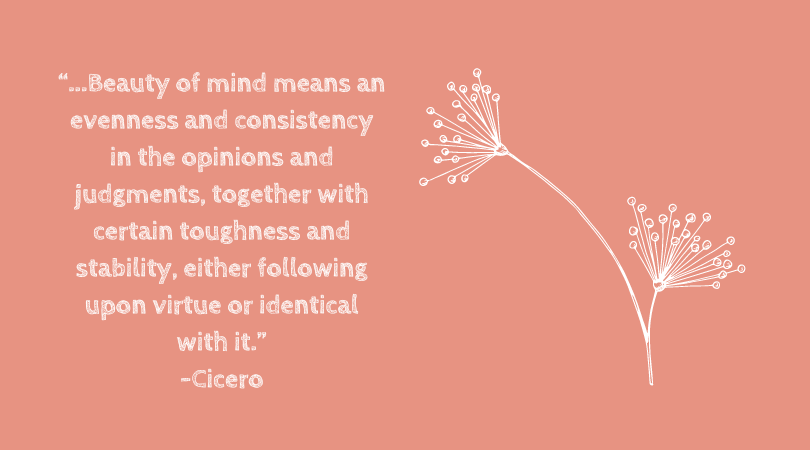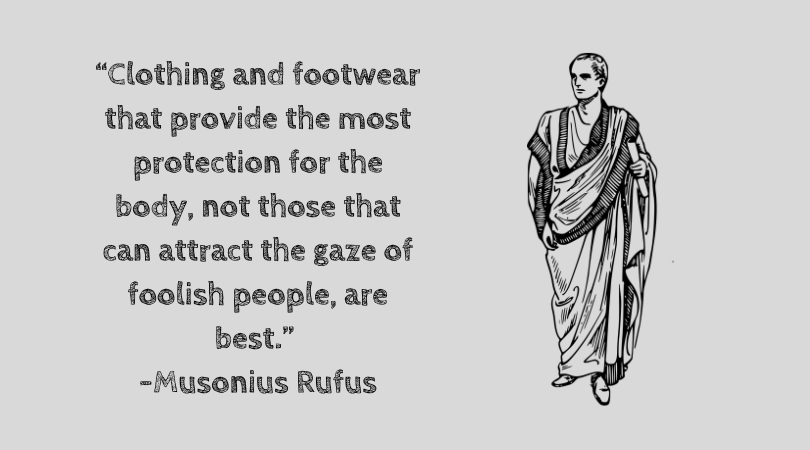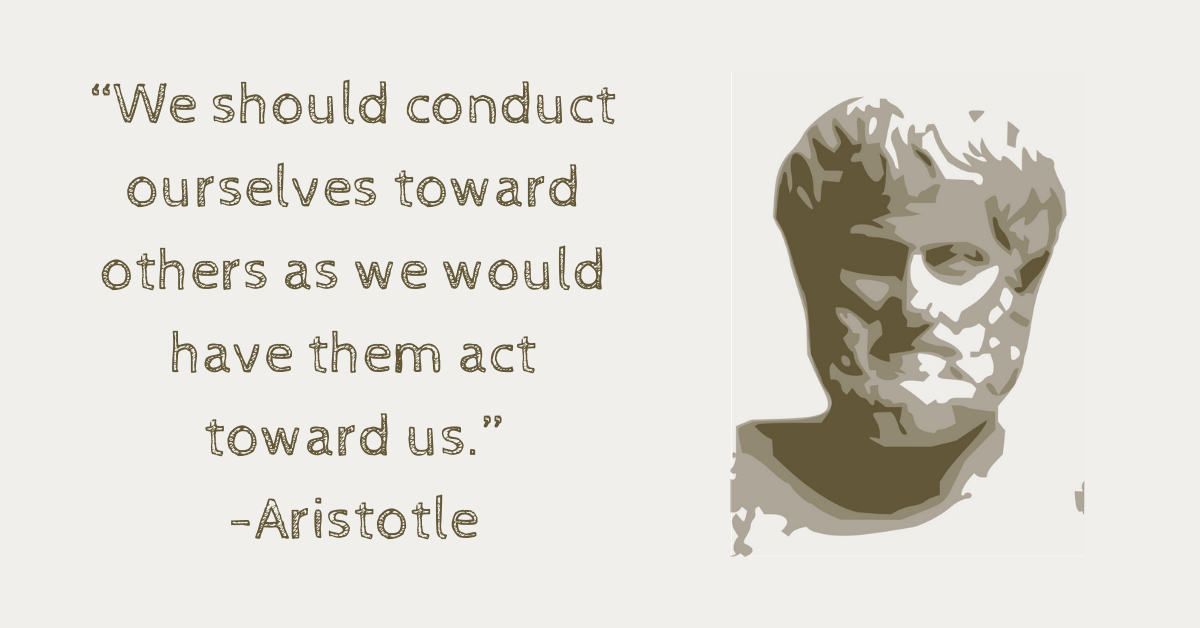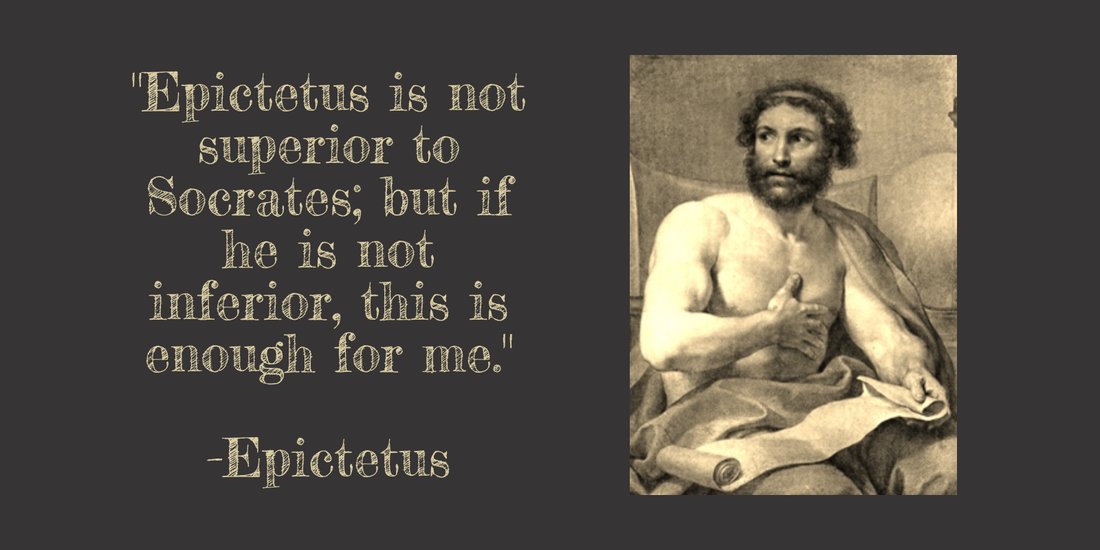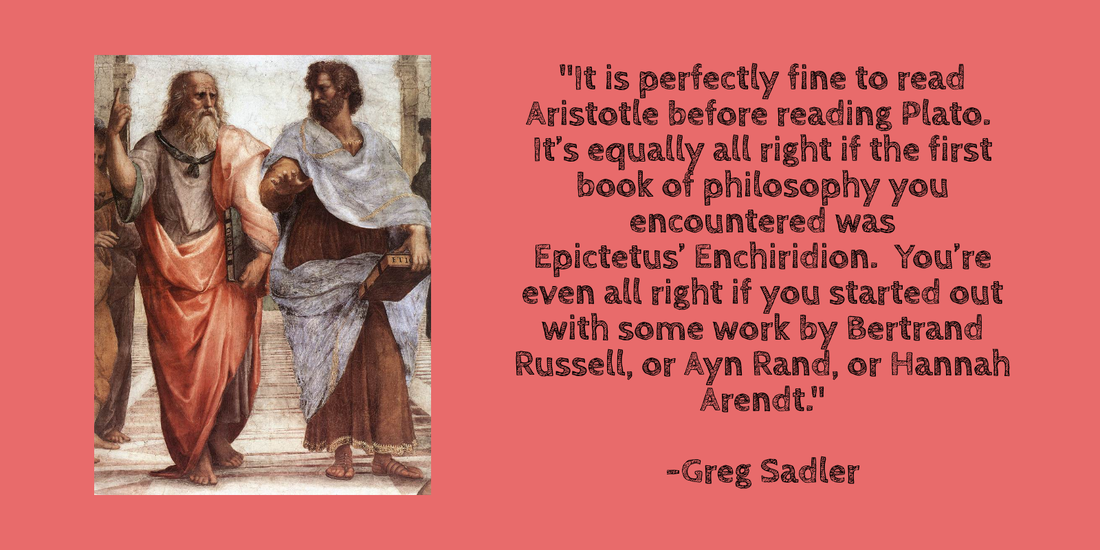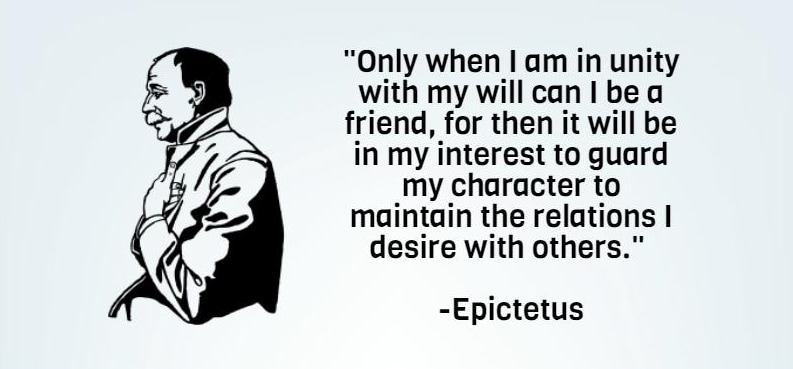The first part of the talk will be looking at what is moral beauty. We'll start with the ancient Stoics and we will fast forward about 1600 years to the Earl of Shaftesbury in England. Then we'll come up to contemporary times. How can we approach moral beauty? What does it mean for us today? And then the second segment of the talk will be some suggestions for how we can cultivate moral beauty today and make our lives more beautiful.
|
This guest post is a transcription of my friend Brittany Polat's talk at Stoicon 2023. It was previously published on Brittany's Substack, Stoicism for Humans, and includes the themes of virtue, moral progress, and Shaftesbury’s views on beauty and nature. I hope you find this very inspirational topic useful in your own life.
The first part of the talk will be looking at what is moral beauty. We'll start with the ancient Stoics and we will fast forward about 1600 years to the Earl of Shaftesbury in England. Then we'll come up to contemporary times. How can we approach moral beauty? What does it mean for us today? And then the second segment of the talk will be some suggestions for how we can cultivate moral beauty today and make our lives more beautiful.
2 Comments
I was recently interviewed about Stoicism and fast fashion by Hannah Korbman, a current student at Binghamton University studying Philosophy, Politics, and Law. The interview, which I have republished here, is part of Hannah's final project, a Stoic magazine, for her seminar on Stoicism and politics.
Hannah defines fast fashion as, "An approach to the design, creation, and marketing of clothing fashions that emphasizes making fashion trends quickly and cheaply available to consumers." The interview gave me an opportunity to focus on Stoic philosophy as it can be applied to our modern decisions on what to wear, trends, consumerism, and the virtue of moderation, all topics I hadn't directly considered before. The final product has made for some interesting reading, and I hope you'll check it out: I welcome Jonas Salzgeber, author of The Little Book of Stoicism, back to the channel for a Stoic dialog on matters of ultimate importance: injury, illness, coming to terms with mortality, fear, and irrational beliefs that result when fear overcomes reason.
We discuss the shortness of life, memento mori, facing fear, and the proper psychological perspective necessary to flourish and be more courageous during uncertain times. We also discuss a Stoic response to the covid-19 pandemic, reasonable caution, and not doing irrational or discriminatory things because of fear of death. Jonas' website: www.njlifehacks.com/blog/ The Little Book of Stoicism: https://amzn.to/3INdnOk* Support Common Sense Ethics to see more videos like this: https://www.patreon.com/commonsenseet... https://ko-fi.com/commonsenseethics *Affiliate link, I may earn a small commission from any Amazon purchases. Really you ask? Is it possible to tell right from wrong and to easily figure out how best to treat other people in every situation? Yes it is, and I'm about to show you how.
It turns out that there are 3 important rules we can always use to do right by others: the Silver Rule, the Golden Rule and the Platinum Rule. These 3 rules are applicable regardless of our politics, religion or culture. These moral rules also have broad support across cultures and throughout history. Let's discuss the Silver, Golden, and Platinum Rules, and how they can easily be applied to tell right from wrong when it comes to our choices and actions. Self-compassion is a common theme in Buddhism, psychotherapy, and various self-help ideaologies. But does it exist in Stoicism? Do Stoics expect themselves to always exercise perfect courage, justice, moderation and wisdom, while considering anything short of this ideal an abysmal failure?
My friend Jonas Salzgeber of NJ Life Hacks noted that self-compassion may be missing from Stoic philosophy when I interviewed him on my YouTube channel. Jonas is right that there certainly seems to be a tendency towards perfectionism in Stoicism. Reading Marcus Aurelius' Meditations, one would get the impression that Marcus was an awfully dour guy who beat himself up when he fell short of the ideal of the Stoic Sage. But in spite of a strong tendency towards the perfectionism of the Sage, I believe that self-compassion is actually present in Stoicism, and that such self-compassion can give us strength and perspective. Wondering how to be less stressed as a parent? Stoicism is an ancient Greek philosophy that teaches us how to focus on what we can control in life. Brittany Polat of Apparent Stoic and I discuss how to apply Stoic philosophy to parenting, and how it can make both parents and kids happier.
We discuss:
Which philosophy books are the best for people just starting out? Dr. Greg Sadler and I talk about his recent list of the 10 Best Philosophy Books for Beginners, which is now one of the most popular posts on this site.
We dicuss:
If you like these types of videos please subscribe to my Youtube Channel.
Today's guest post is written by my friend Greg Sadler. Greg was a philosophy professor earlier in his career, and still teaches upon request for traditional academic institutions. Over the last decade, he transitioned to doing philosophy in more public and practically oriented ways. He is the president of a philosophical consulting, coaching, and tutoring company, ReasonIO. He is also the editor of Stoicism Today. His main YouTube channel contains over 1,300 videos, and has had nearly 5 million views. His personal blog is Orexis Dianoētikē. He lives with his wife and partner, Andi Sciacca, in their hometown of Milwaukee, Wisconsin.
This is actually a difficult question – which philosophical texts are best for beginners? But it’s also one that I get asked pretty regularly. I typically suggest starting with Plato, and occasionally delve a bit deeper into the topic, but admittedly haven’t devoted the thought and attention it really deserves to give a proper answer. So when Leah brought it up as a matter that might be addressed, and suggested we record a conversation on her YouTube channel about it – which you can watch here – I thought writing a bit first might help me sort out my thoughts on the topic. I'm excited to share this guest post written by Travis Hume of Applying Stoicism. Travis is a special education paraprofessional. He writes daily on practical applications of Stoic philosophy for the modern day, based upon first-hand real-world experiences.
This article explores how to implement Stoicism to life’s difficulties, including the nature and origin of emotions, and the judgments that bring rise to them. My primary purpose is a deeper understanding of the psychological process we act upon on a moment-to-moment basis. The goal, at the very least, is an improvement in control over our reactions to difficulties, and greater inner breathing room to develop a measured response to emotions. Establishing a deeper understanding of our psychological process may lead to life-long changes in behavior that sets us on a path towards Eudaimonia - a state of self-actualization, excellence, fulfillment, and flourishing as a human being. In this environment of political tension, being angry is de riguer. I have recently been criticized for not being morally outraged about some public policy issue. It got me thinking, in light of how complex human society is, why the rush to judgment? Why let anger over some abstract political issues get in the way of your relationships with others?
The give and take necessary for discussing controversial subjects in a reasonable way is a learned skill. I'm the first to admit that am not as good at it as I would like to be. My own failure of articulation aside though, I don't want to rush to judgement about complex issues without being able to research and think them over carefully first. The philosopher Jaques Ellul stresses caution in rendering our convictions: The propagandist can mobilize man for action that is not in accord with his previous convictions. Modern psychologists are well aware that there is not necessarily any continuity between conviction and action, and no intrinsic rationality in opinions or acts. Into these gaps in continuity propaganda inserts its lever. It does not seek to create wise or reasonable men but proselytes and militants.[1] I have written before that being quick to anger makes you vulnerable to propaganda, which is why you should try to be cautious with your thought process. But in doing so, you are likely to leave yourself open to being misunderstood. In fact, these 5 seemingly reasonable behaviors of political freethinkers and independents might really piss people off: |
Don't Miss A Post!Sign up to receive updates and special announcements! Thank You For Subscribing to Common Sense Ethics!You have successfully joined my email list. About Me:Thank you for your interest in Common Sense Ethics! I'm Leah, a librarian and freelance editor with a background in history and philosophy.
Most Popular Blog Posts:3 Unpopular (But Likely Correct) Opinions According to Cicero Download My Stoic Printables For Tough Days:
Watch Common Sense Ethics On YouTube:
|

